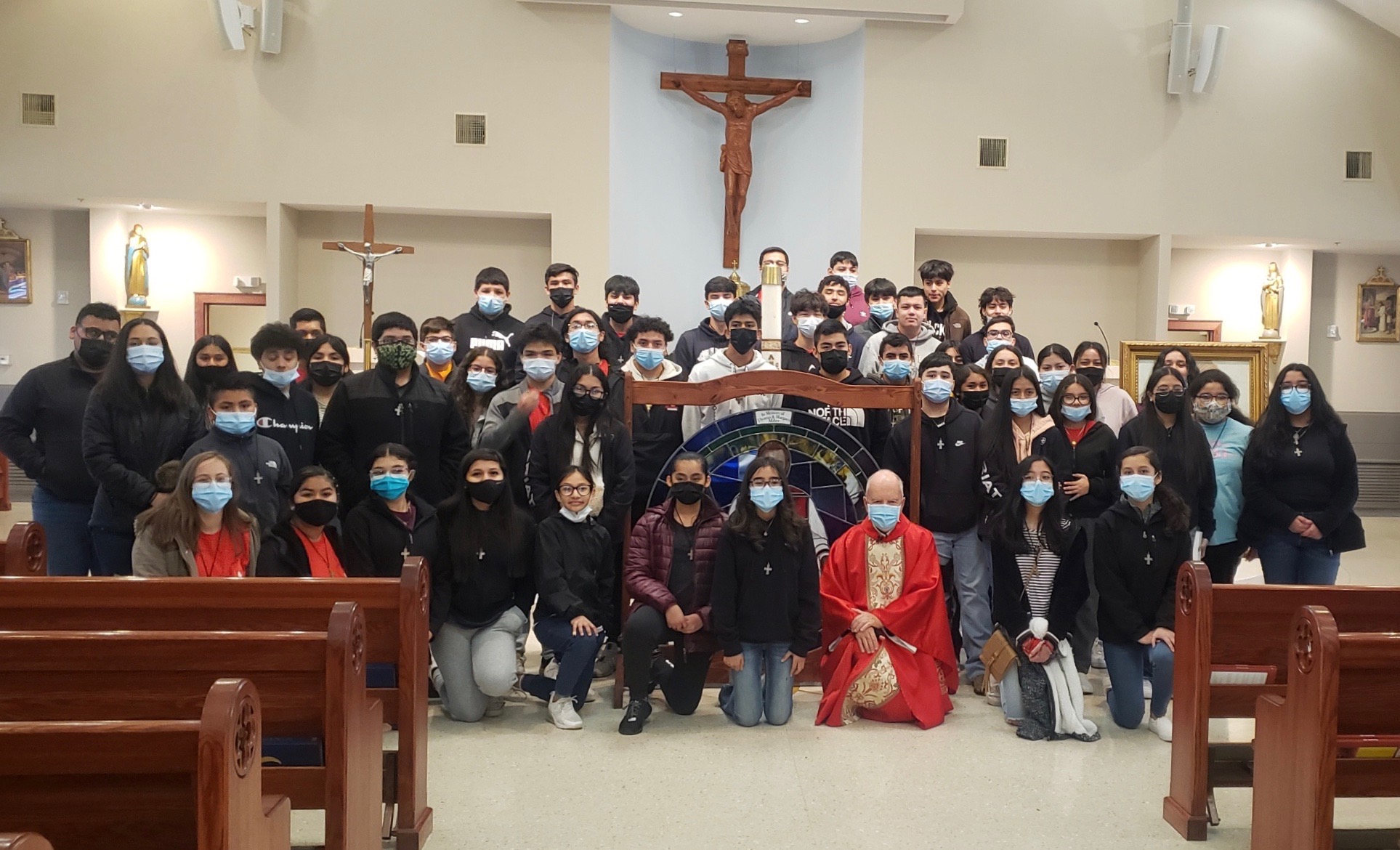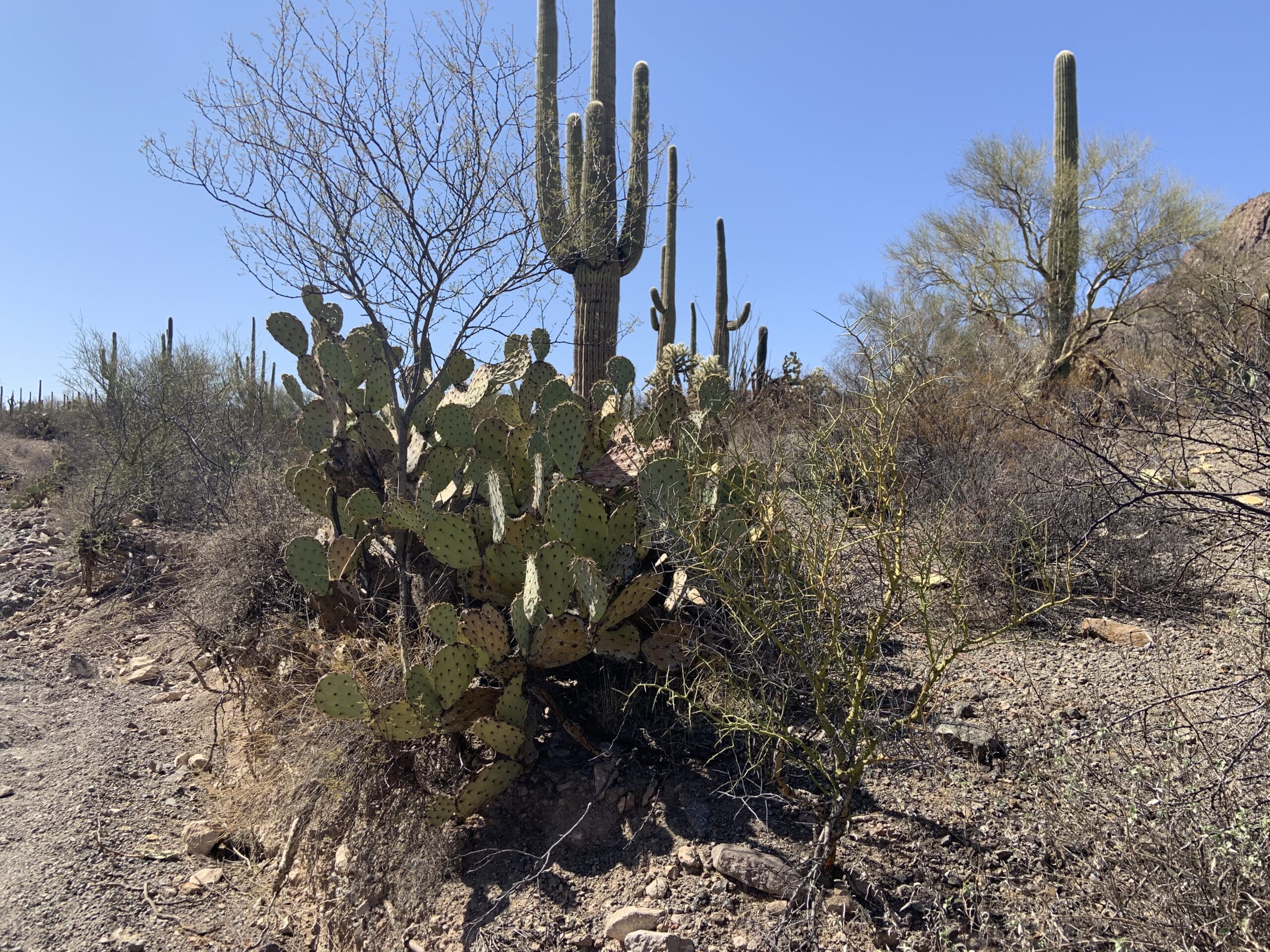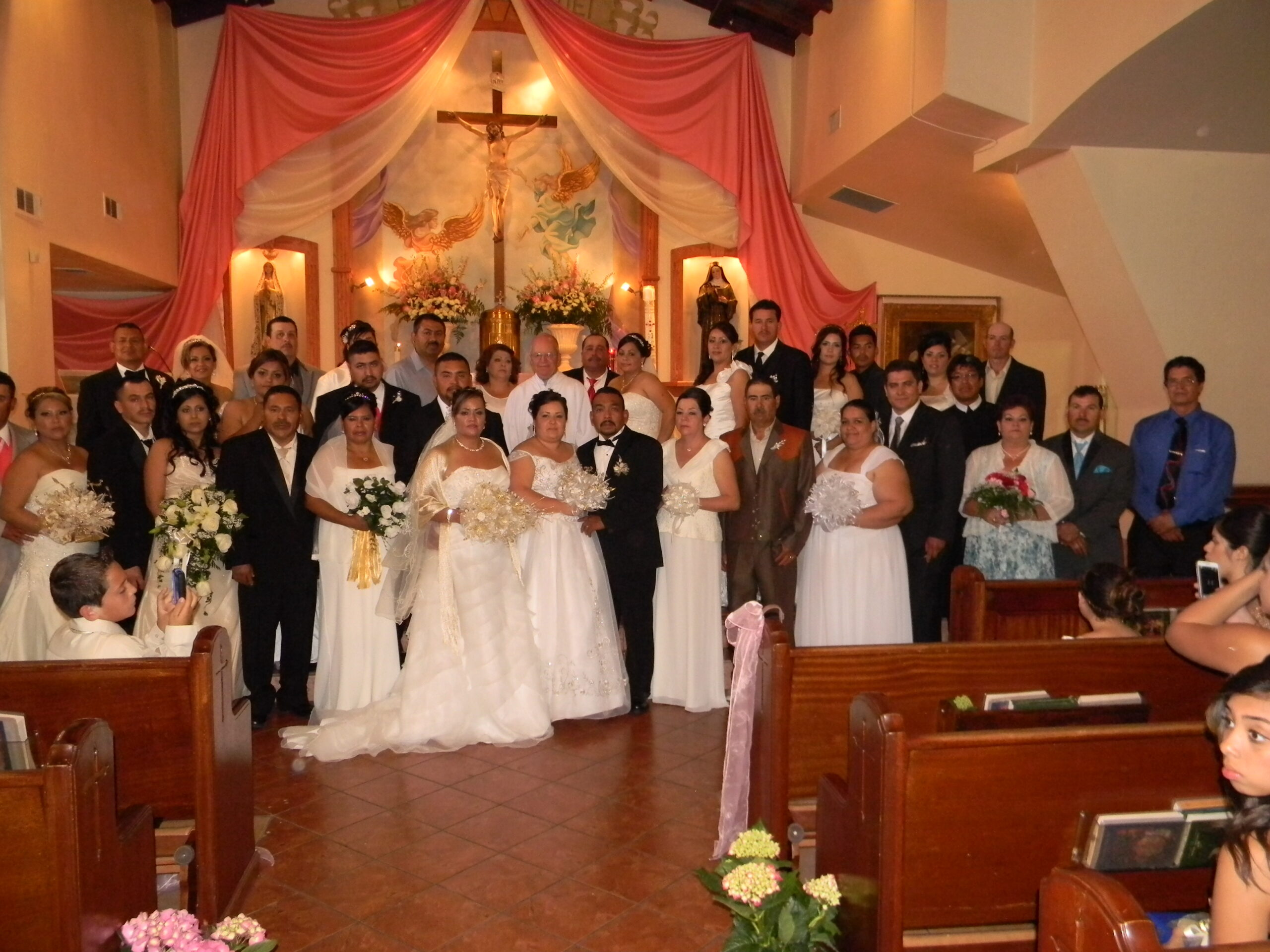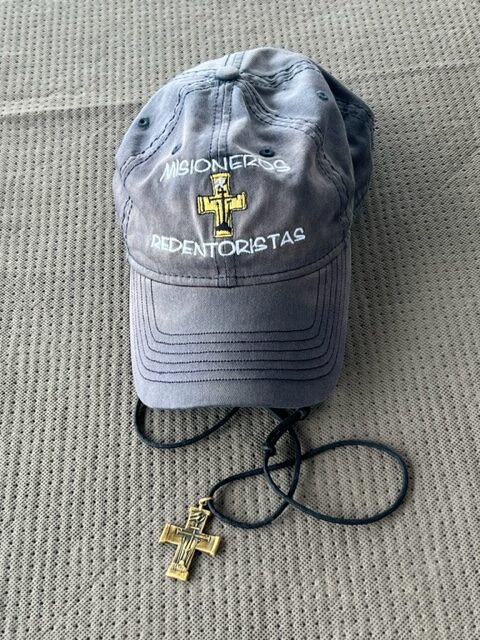Walk with My People – Caminar con Mi Pueblo
Caminar con Mi Pueblo
Varias veces en estos blogs de Padre Migrante, vuelvo al tema central de mis treinta años en el ministerio hispano. Espero que los lectores no se cansen de este tema, ya que resume mi vida como misionera redentorista. Gente ha estado migrando desde que Adán y Eva abandonaron el jardín. Hace unos días, escribí que quiero dar una mirada renovada a la migración, recordando mi caminar de los últimos treinta años con Migrantes y considerar maneras en que podemos responder mejor a las personas en movimiento.
Permítame presentar a una familia típica de inmigrantes que conozco en el ministerio hispano. José y María (no son sus nombres reales) llegaron a los Estados Unidos cuando eran adolescentes hace cuarenta años. Llegaron como inmigrantes para trabajar en granjas en el Medio Oeste. Se conocieron aquí, se casaron y tienen ocho hijos. En un domingo típico asisten a misa con los dos hijos menores. Dos hijos están en el coro, otros están esparcidos por la Iglesia con sus cónyuges e hijos. Después de la Misa, hay una reunión familiar semanal a las puertas de la Iglesia. Muchos de los hijos y nietos van a desayunar a casa de José y María. Adentro, hay una olla de menudo, tocino, huevos y chorizo para freír y tortillas calentando. Los nietos están jugando. Dos jóvenes hablando de sus clases en la universidad. De los hijos mayores hay una enfermera, una maestra, un albañil y un hijo que trabaja en la agricultura con su padre. Son el modelo de inmigrantes en los Estados Unidos.
Después de mi última misa, pasé por la casa. Todavía había varios autos afuera. José salió de la casa. Ya no vestía su ropa de Iglesia. Parecía listo para trabajar. Le pregunté adónde iba y me dijo: “Voy a alimentar a las vacas. Las vacas comen los siete días de la semana, padre”. Cuando se fue, consideré la ética de trabajo de los migrantes. Vienen a este país por una oportunidad de trabajar. Comienzan en un nivel de entrada en algunos de los trabajos más desafiantes de nuestra sociedad. Se esfuerzan por llevar comida a la mesa de sus hijos, por darles la oportunidad de acceder a una educación superior y llegan a ver su trabajo como algo importante para la comunidad. Al séptimo día, el migrante da gracias a Dios, pero no se olvida de las vacas.
Esta casa podría haberse encontrado en las comunidades del Medio Oeste hace cien años. La herencia podría ser alemana, irlandesa, italiana u otras culturas. Mientras sigo caminando con los migrantes, me doy cuenta de que tengo la bendición de poder caminar con migrantes e inmigrantes en los Estados Unidos. Son la gran mayoría de los inmigrantes de todas las naciones. Me duele escuchar el veneno antiinmigrante que a menudo pasa en los periódicos, la televisión y las transmisiones de radio que retratan a los inmigrantes como un lastre para la sociedad.
En medio de esta realidad del COVID en nuestro país, la celebración religiosa ha sido un desafío. Ofrecemos servicios religiosos con límites de asistencia, manteniendo la distancia entre los participantes, usando máscaras, transmitiendo servicios para que las personas los vean en casa y limitando nuestros horarios de reunión con niños y programas de educación religiosa. A medida que disminuyen las restricciones, algunas personas regresan a las iglesias, pero muchos de nuestros servicios solo tienen una asistencia parcial.
En las iglesias de migrantes e inmigrantes, todavía hay una participación animada durante la pandemia. El pasado fin de semana participé en un día de retiro de jóvenes en Madill, Oklahoma. Estábamos preocupados por el momento del retiro por la pandemia. Nuestra iglesia es lo suficientemente grande como para mantener la distancia entre los participantes. Todos llevaban máscaras y había más de 100 participantes. Era buen retiro. La foto arriba es del retiro. No consideramos tener una foto de grupo. Algunos salieron antes que hicimos la foto
Después del retiro del sábado y el reconocimiento del domingo a la familia inmigrante en la Misa, me siento esperanza por el fin de todas las pruebas que enfrenta nuestro mundo. En muchos sentidos, la vida en los Estados Unidos y en la Iglesia Católica siempre comienza con personas en movimiento. Nos hemos estado mudando desde que Adán y Eva se mudaron del jardín.
(Si tienes observaciones o preguntas para Padre Migrante, envían las a padremigrante@gmail.com)
Walk with My People
Several times in these Padre Migrante blogs, I return to the central theme of my thirty-year journey in Hispanic Ministry. I hope that readers do not tire of this consistent theme, as it sums up my life as a Redemptorist missionary. People have been migrating ever since Adam and Eve left the garden. A few days ago, I wrote that I want to take a renewed look at migration, recalling my walk for the past thirty years with Migrants and consider ways we may better respond to people on the move.
Let me introduce a family typical of immigrants whom I meet in Hispanic ministry. José and María (not their real names) came to the United States as teenagers forty years ago. They came as migrants to work on farms in the Midwest. They met here, married and have eight children. On a typical Sunday they attend Mass with the two youngest of their children. Their other children are scattered through the Church with their spouses and children. After Mass, there is a weekly family reunion at the doors of the Church. Many of the children and grandchildren go to José and María’s home for breakfast. Inside, there is a pot of menudo, bacon, eggs and chorizo frying and tortillas warming. The grandchildren are playing. Two children in college compare their schools. Of the older children, there is a nurse, a teacher, a construction worker and a son working in agriculture with his father. They are the model of immigrants in the United States.
After my last Mass, I drove by the house. There were still several cars outside. José came out of the house. He was no longer in his Church clothes. He looked ready for work. I asked where he was going, and he said, “Going to feed the cows. The cows eat seven days a week, Padre.” As he left, I considered the work ethic of migrants. They come to this country for an opportunity to work. They begin at an entry level in some of the most challenging work in our society. They strive to put food on the table for their children, to give their children the opportunity for higher education and they come to see their work as important for the community. On the seventh day, the migrant gives thanks to God, but doesn’t forget the cows.
This home could have been found in Midwest communities a hundred years ago. The heritage could be German, Irish, Italian or other cultures. As I continue to walk with migrants, I realize that I am blessed to be able to walk with noble immigrants in the United States. They are the majority of immigrants from all nations of the world. It pains me to hear the anti-immigrant venom that often fills newspapers, television and radio broadcasts that portray immigrants as a drag on society.
As we experience challenging times during the COVID pandemic, religious celebration has been challenging. We offer religious services with limits on attendance, keeping distance between participants, wearing masks, broadcasting services for people to watch at home, and limiting our meeting times with children and religious education programs. As restrictions ease, some people come back to churches, but many of our services have only partial attendance.
In migrant and immigrant churches, there is still lively participation even during the pandemic. This past weekend, I participated in a youth day of recollection in Madill, Oklahoma. We were concerned about the timing of the retreat on account of the pandemic. The church is large enough to maintain distance between participants. All wore masks and there were over 100 participants. It was a good retreat. The picture above is from the retreat. We did not consider having a group picture. Some left before we took the picture.
After the retreat on Saturday and my Sunday recognition of the immigrant family at Mass, I am encouraged about our recovery from all the trials that our world faces. In many ways, life in the United States and in our Catholic Church always begins with people on the move. We have been moving ever since Adam and Eve moved out of the garden.
(If you want Padre Migrante to respond to your concerns or questions, write to: padremigrante@gmail.com)
Oh Jesús, tú nos llamas: “Síganme”. Bendice, Señor, a todos los que acogen tu llamado. Puede que el camino no sea fácil, pero tenemos la confianza de que todo es posible si caminamos contigo. Que este viaje nos abra los ojos a las maravillas de tu amor por nosotros. Oramos por toda tu gente, por todos los creyentes e incrédulos, por los líderes y seguidores. Oramos por la sanación, el perdón, la compasión, la justicia y la paz. Oramos para que, al seguirte, nosotros también podamos ser pescadores de hombres. Bendícenos en nuestro viaje.
O Jesus, you call us, “Come after me.” Bless, O Lord, all who welcome your call. The path may not be easy, but we have confidence that all things are possible if we walk with you. May this journey, open our eyes to the wonders of your love for us. We pray for all your people, for all believers and unbelievers, for leaders and followers. We pray for healing, for forgiveness, for compassion, for justice, for peace. We pray that as we follow you, we too can be fishers of men. Bless us on our journey.





Michael Rosenthal-English
January 18, 2022 @ 11:35 am
Thank you for sharing spiritually uplifting insites into your ministry Father Mike.I find them really helpful and thought ürovking and will try to use your wise advice in my own life when dealing with others
padremigrante
January 18, 2022 @ 2:15 pm
Thank you for your comments. God bless you in your ministry. Fr. Mike